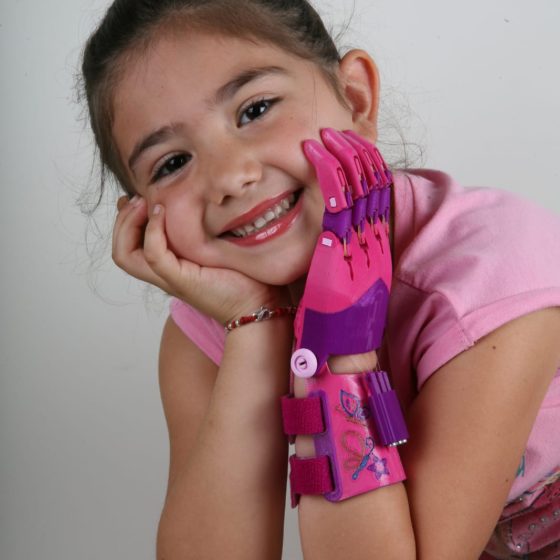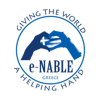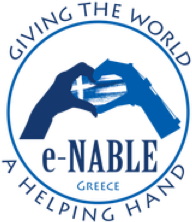3D Printing – Fostering creativity to your students.

Course Summary
This course is intended for any teacher/educator desiring to use the technology of 3d printing in the classroom, especially for those educators wishing to learn how to effectively use 3d printing projects to increase or develop the creativity of their students.
The course content is not limited to teachers of technical or scientific subjects. On the contrary it is open to teachers of all subjects and levels. History teachers can design artifacts or ancient monuments (Egypt pyramids, ancient temples or theaters), geography teachers can print topography maps, biology teacher can print DNA helix or cross section of human organs and so on. Special reference will be made on how 3d printing can help people with special needs or in general people of any need, as this is the main work of e-Nable community and also this objective will develop significant social skills for the next generation European citizens as solidarity and volunteering.
Target Group
Teachers (pre-school, primary, secondary, vocational, adult, special needs), teacher trainers, careers officers, educational counselors and any other professional interested in education, learning and volunteering.

Course in Athens
Objectives
– Provide teachers/educators with practical ideas on how they can incorporate 3d printing technology into their existing lessons.
– Bring teachers/educators in contact with the amazing world of 3d printing technology.
– Provide educators/teachers with the knowledge and skills to design and print a 3d subject for their classroom.
– Familiarize teachers with the e-Nable printed devices for people with disabilities.
– Demonstrate its appropriancy for Project Based Learning (PBL) implementation.
Methodology
Project Based Learning: Teachers will form groups of 3 persons according their teaching subject (1 team of Chemistry teachers, another team of history teachers and so on). Each team will design and print a simple object for their classroom (for example the molecular construction of water or the column of the Parthenon temple).
Demonstration: The hardware, parts and basic setup of a 3d printer will be explained to the trainees.
Learning by doing: the trainees will actively engaged with the 3d printing process, trying to print objects useful for their lessons.
Formative assessment: during the course the trainers will estimate the level of trainees and adjust the content of the course according to the individual needs of the trainees.
Course Fees:
560 euros for a 7-day course: includes registration and course fees, course educational material, administration and organizational fees, Athens center guided tour, Certificate of Attendance and Europass certification (upon request).
Sessions
Check our Erasmus Courses Social Media
Preparation
Trainees will receive a questionnaire, which will provide information on their teaching subject, teaching background, qualifications, and any previous experience with 3d printing. Furthermore trainees will receive a simple guide about “What is the 3d printing?”.
Follow up
Trainees will be supported by the e-Nable Greece Erasmus+ trainees Facebook Group. The group is full of instructions, photos and videos of how to use/set a 3d printer and design/print educational materials. The administrators of the Group will give instant feedback to any trainees’ question or problem.
In addition, trainees will be provided with the educational material of the course in copies and in digital files. This material may be used by the trainees for presentation to their own organizations in order to generate interest in 3d printing in the classroom.
Learning outcomes
– Improved abilities to use innovative and project based pedagogical approaches using 3d printing in the classroom.
– Improved skills about using a 3d printer in the classroom.
– Helping students to make “real” their idea (think – design – print).
– Strengthened professional profile.
– Increased capacity to cooperate on international level.
– Internationalization of the sending organizations. Opportunity for future cooperation (job shadowing/partnerships).
– Improvement of language skills.
– Raising awareness for the value of volunteerism.
– Encouragement of using new technolologies to help people with disabilities.
– Development of solidarity for people with disabilities.

